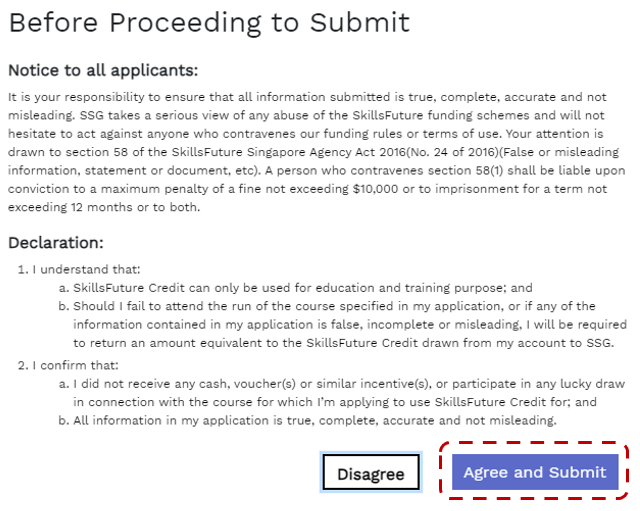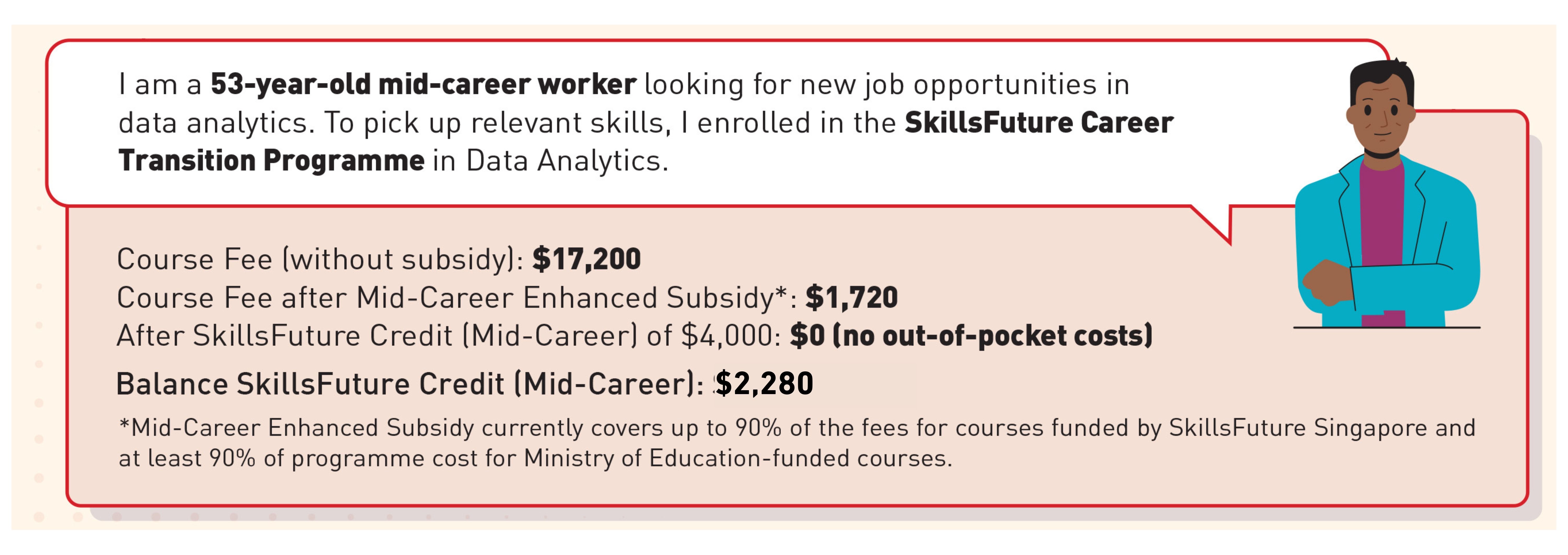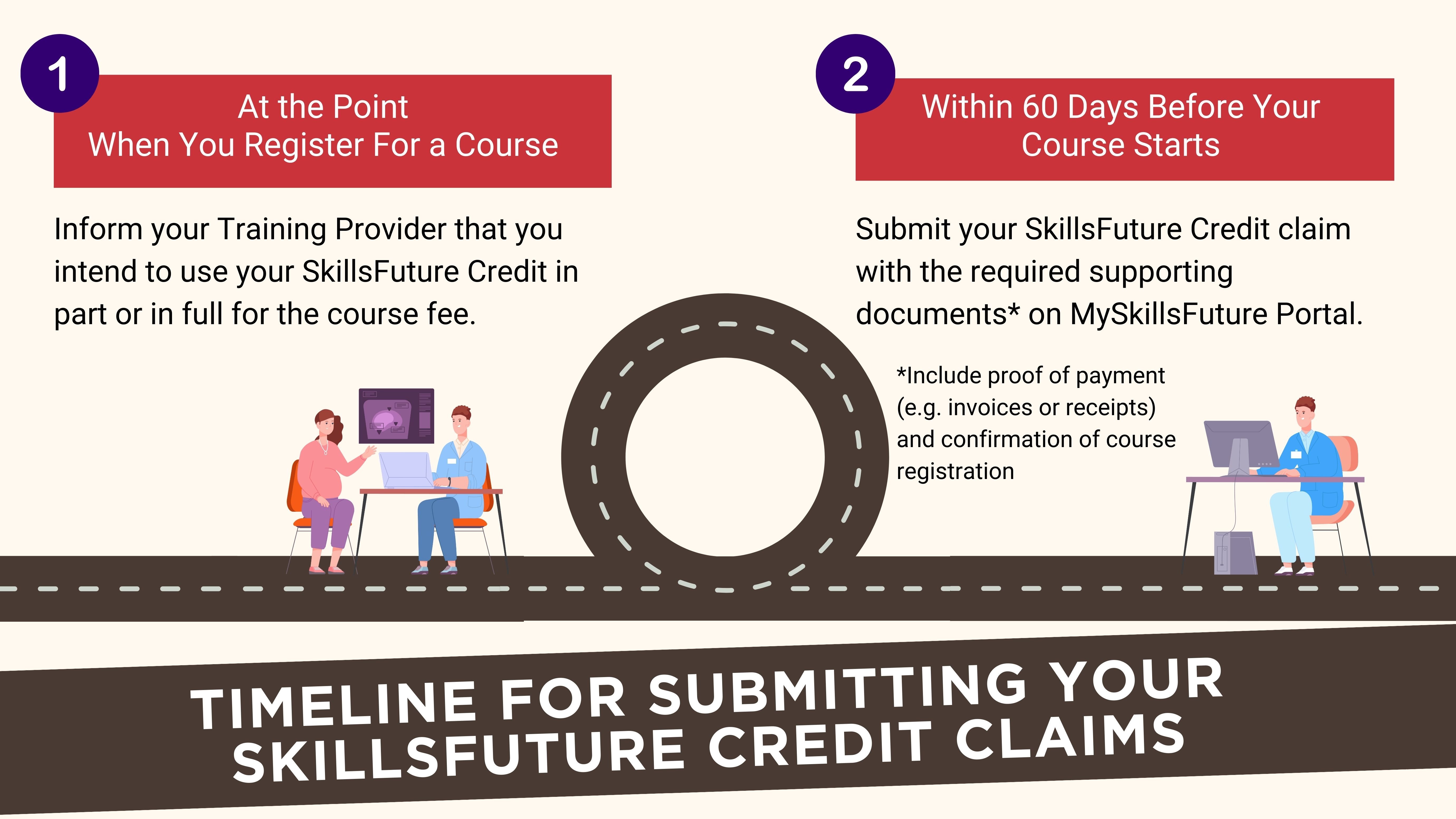After you have selected a course here, you will have to first enrol for it with the training provider.
Upon successful course enrolment, you can submit a claim for SkillsFuture Credit within 60 days before course start date by following the steps below.
1. Select ‘Submit SkillsFuture Credit Claims’ on MySkillsFuture homepage and log in with your Singpass.
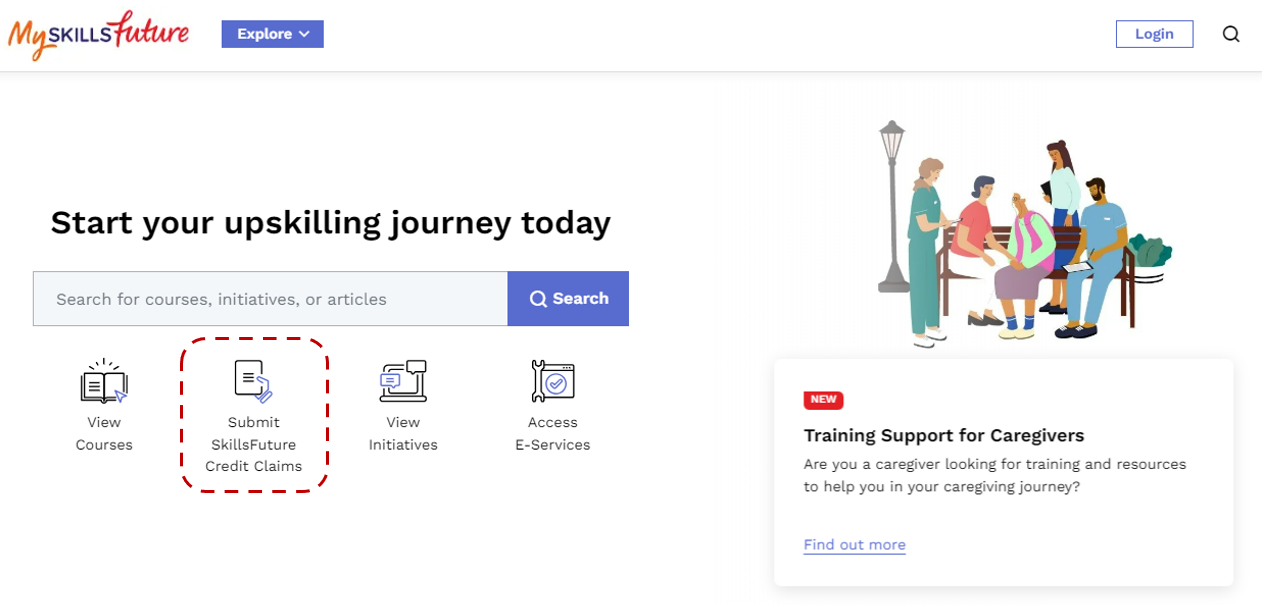
2. Ensure you have selected 'Submit a Claim'. You can then search for the course to submit a claim by searching the course title, course reference number or training provider.
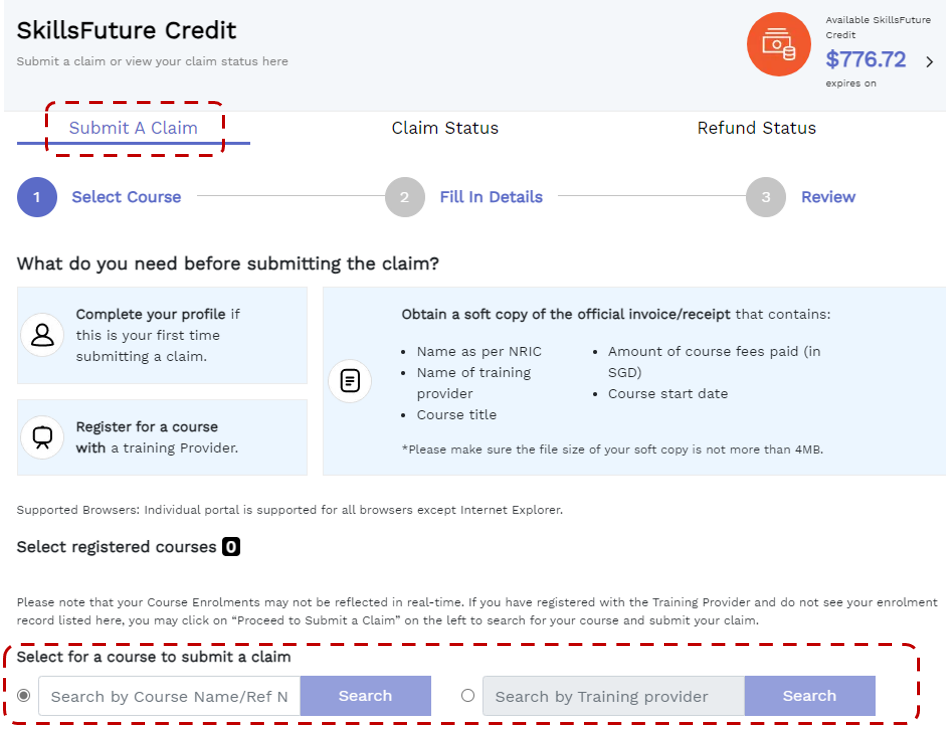
3. If there are multiple results for the search result, ensure that you have selected the option with Course ID and training provider that matches the course you have enrolled in.
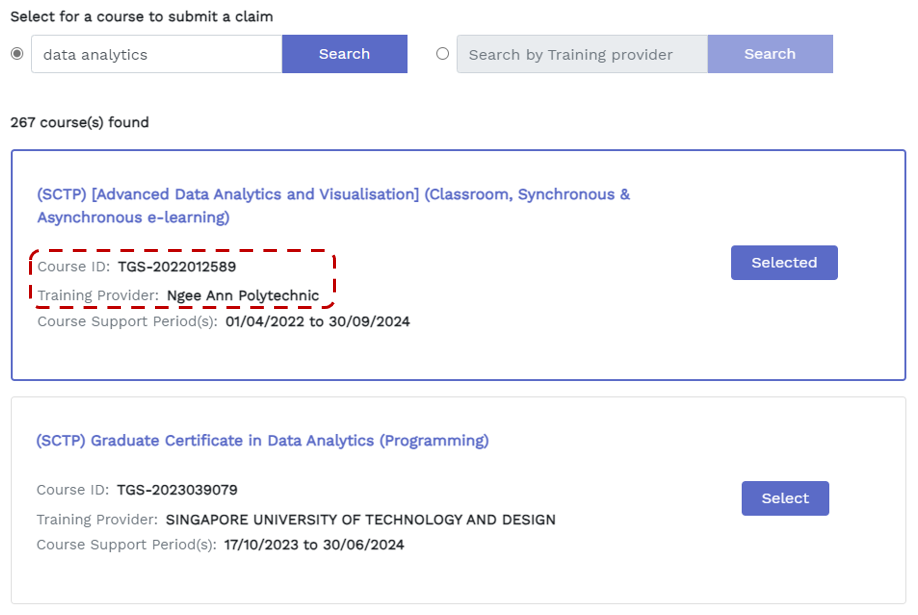
4. Select the course run or course start date. As there may be multiple course runs indicated, please select the correct run you have enrolled in.

5. Input the (1) amount of SkillsFuture Credit to claim, (2) fee payable by you (i.e. the final course fees charged by training provider) and (3) supporting documents (enrolment confirmation and receipt from training provider). Click on ‘Review’ once complete.
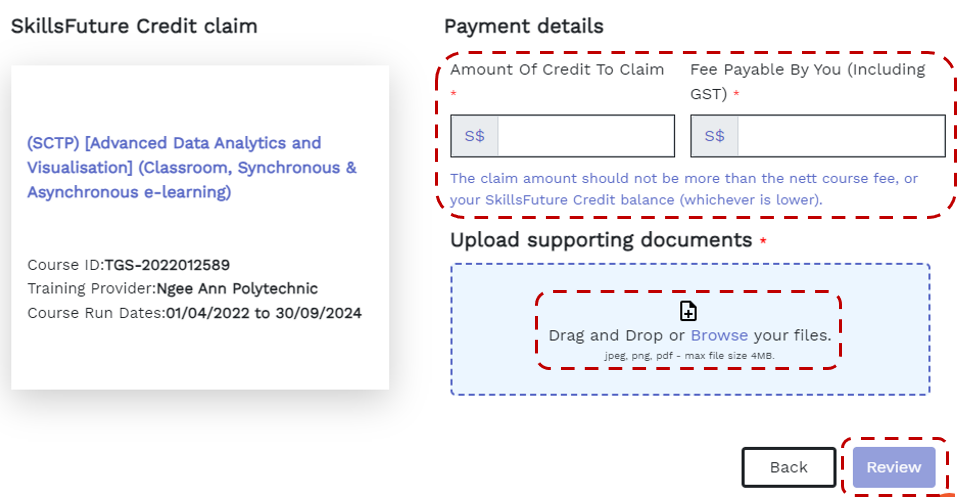
6. Review the information submitted. Click the checkbox ‘I have read and agreed to the SkillsFuture Credit Terms & Conditions’ once verified then click on ‘Submit’. You can select the ‘Back’ button at this point if you wish to edit any information.
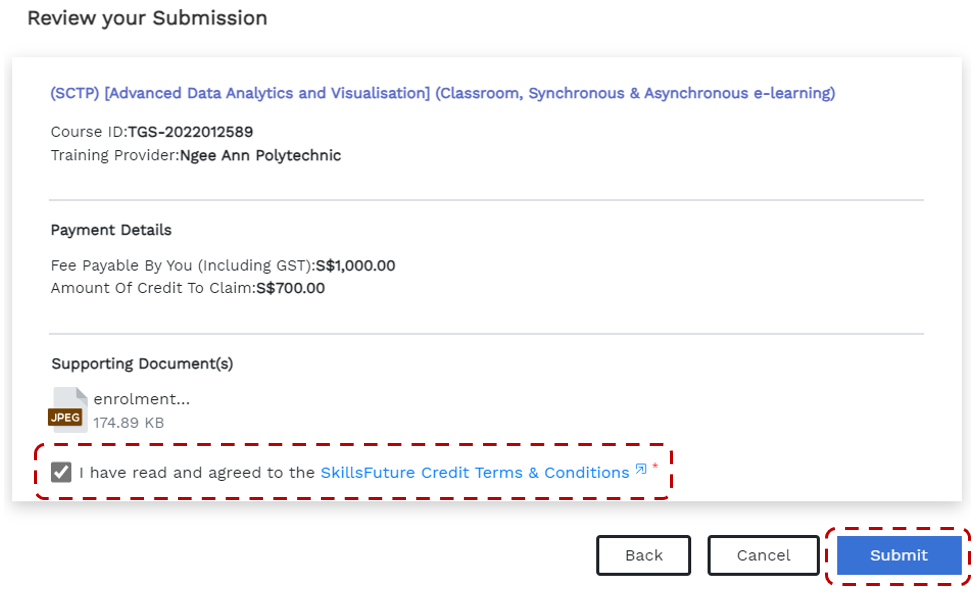
7. A pop-up for your declaration will appear. Click on Agree and Submit.
